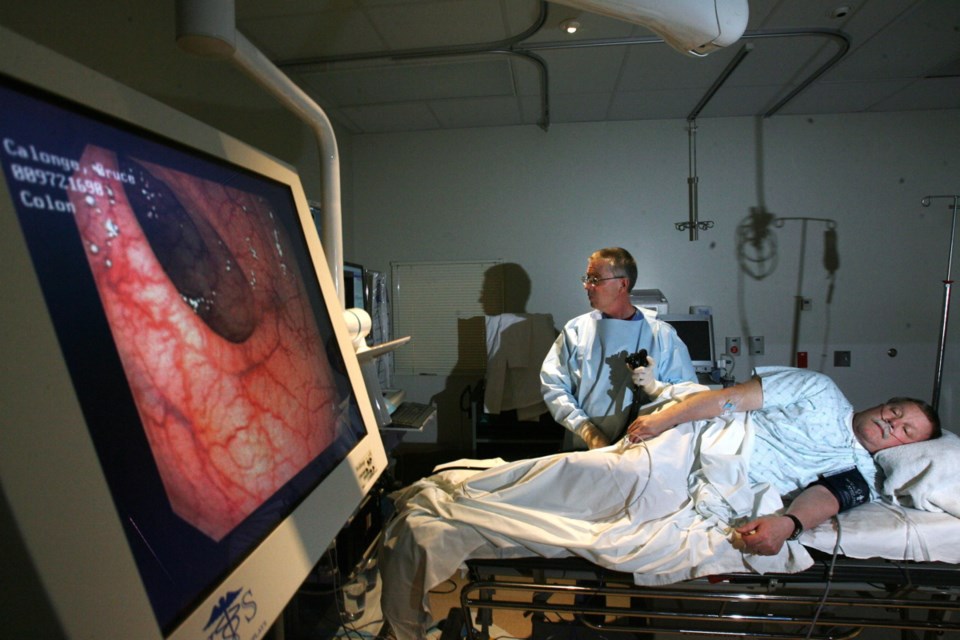A flood of referrals for colonoscopies — the result of a new provincial cancer screening program — is overwhelming Greater Victoria specialists, who are recommending patients be sent elsewhere.
The number of people being referred for the tests has tripled since April, when a new B.C.-wide screening program was introduced in the Vancouver Island Health Authority in April.
“The frustrating thing on a professional level is we are highly trained, highly skilled individuals who have the ability to do [the colonoscopies],” said Dr. David Pearson, head of the division of gastroenterologists for VIHA.
The new screening program — set to be expanded across B.C. — gives residents between the ages of 50 and 74 access to take-home stool tests through doctors’ offices. The $35 tests are publicly funded by the province.
The tests screen for traces of blood in the stool, which can be a sign of cancerous tumours or pre-cancerous polyps in the colon and rectum. Colorectal cancer is the second-leading cause of cancer death in adults.
A patient with a positive stool test is recommended to get a colonoscopy within eight weeks. The waiting time is now four months — a situation expected to worsen, doctors say.
“It’s not a lack of people so much — it’s a lack of ability to practise our trade,” Pearson said. “It’s way too long to get people from referral to diagnosis.”
Specialists said the number of procedures they can perform is affected by limited endoscopic time.
In a letter dated July 1, the VIHA Gastroenterolgy Group tells family doctors they don’t have the access and resources to meet the increased demand to diagnose, treat or monitor patients in accepted time frames.
The group, which represents all 10 gastroenterologists at Victoria General and Royal Jubilee hospitals, recommends colleagues refer patients to Lower Mainland hospitals or even private clinics.
“Your patients deserve to receive gastroenterology evaluation within appropriate wait times, and as we cannot provide this, we have an ethical and legal obligation to recommend that you refer your patients elsewhere,” the letter reads.
Dr. Bill Bullock, who shares a family practice on Cook Street, said referral letters have been returned that say “due to the high volume of patients we’re not able to accept this referral.”
“In our small office, I’d estimate we’ve had more than about 12 positive [stool test results] in the past two or three weeks,” Bullock said. “It’s flooding the system.”
The demand is only going to increase, he said.
“I think it’s an unfortunate situation that this is a publicly funded system that can’t deal with something that is a government screening program,” Bullock said.
The gastroenterologists said they were already struggling with a lack of access to the endoscopy unit — open 8 a.m. to 5 p.m. — a shortage of nurses and a slowdown caused by the ongoing implementaton of the electronic health record at Royal Jubilee.
In other parts of B.C., gastroenterologists perform 25 to 30 outpatient procedures a week whereas VIHA’s average has been 16, Pearson said. He is now down to 11 procedures a week.



